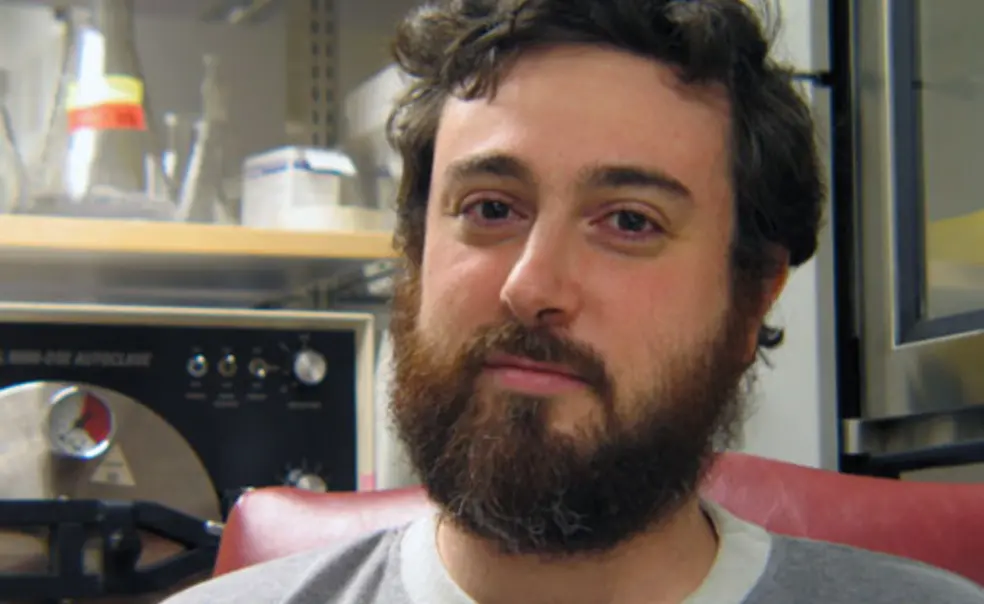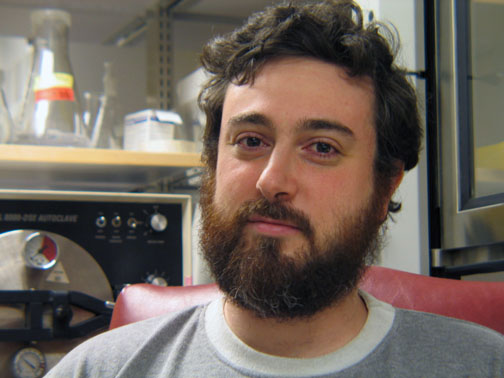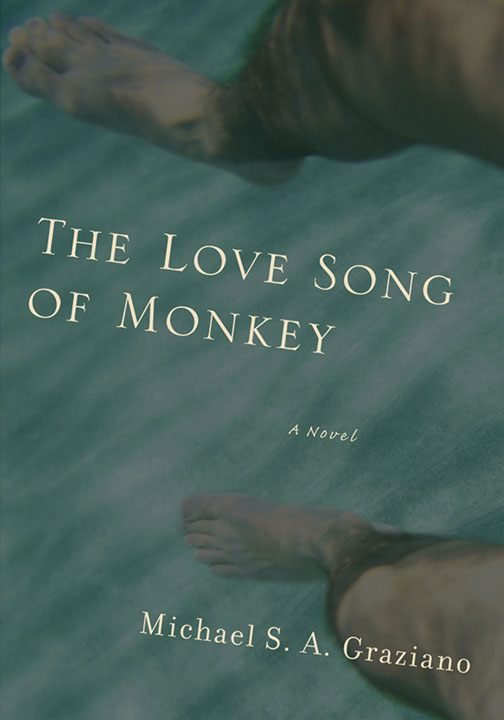Attempts by Princeton neuroscientist Michael Graziano ’89 *96 to answer life’s big questions usually lead him to one of two different pursuits: research on the human cortex or fiction writing.
His four recent books show how the associate professor of psychology does both. There’s The Love Song of Monkey, which explores one character’s unlikely path to enlightenment. Cretaceous Dawn: 65 Million Years in the Past, the Journey Begins, co-authored with his sister, Lisa Graziano, is about the age of dinosaurs. And there’s a children’s book, Billy and the Birdfrogs, under the pseudonym B. B. Wurge, about a 9-year-old boy who searches for mysterious birdfrogs invading his house. Finally, The Intelligent Movement Machine is the scholarly culmination of eight years of research, published by Oxford University Press. All have been published since September.
In his comic novel published last fall, The Love Song of Monkey, Graziano, who earned his doctorate in psychology, displays a flair for the surreal. The journey involves an experimental medical procedure to cure AIDS gone awry. Believed to be dead, the main character, Jonathan, is dumped into the ocean by his wife and doctor. Able to think but not move at the bottom of the Atlantic Ocean, Jonathan contemplates his wife’s infidelity and his love for her, and probes the depths of existential meaning. Eventually he surfaces and discovers superhuman powers, which he uses to act on what he’s learned.
Graziano started crafting stories as a youngster, and took courses with Joyce Carol Oates as an undergraduate. Whether organizing research for a scientific publication or composing a literary work, “the goal is communication, trying to express ideas as clearly as possible,” says Graziano, who studies movement control and eye-hand coordination. “Science is not a linear story. It’s a web of interconnecting ideas. You have to find the best way of organizing that into a sequence of thoughts.”
Graziano’s fiction efforts are published by Leapfrog Press, which he and his sister purchased two years ago. Lisa runs the business in Massachusetts, while Graziano contributes with editing and choosing new writers. Leapfrog plans to bring out five new titles a year; the focus, Graziano says, is on works that might not have a chance with more established publishers.
Psychology has influenced his fiction, Graziano says. “My protagonists are conflicted mixtures of good and bad. At its heart, Love Song of Monkey is about coming to terms with this basic truth of human nature that we can be loving and cruel, generous and destructive, and it’s better to forgive the contradiction, accept it, and move forward.”
Maria LoBiondo is a PAW contributor.














No responses yet